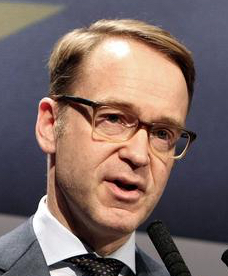
‘Refugees’ are not paying German pensions but contributing to poverty
Germans were promised that an influx of migrants would solve the country’s imploding demography. But instead pensioners are bearing the brunt of the wave of newcomers, not benefitting from it.
“Refugees to pay our pension,” an editorial headline the newspaper Frankfurter Rundschau in February 2016 promised German readers. The migrant “influx ensures rejuvenation that is so urgently needed” and the migrants “will soon pay into our public welfare system,” the newspaper promised.
However, poverty, especially among elderly German pensioners, has reached an historic high. Almost 20 percent of Germans are threatened by poverty today, according to the German Federal Statistical Office.
The current level of poverty is “higher than ever since the unification of the Federal Republic and the [Communist] German Democratic Republic,” the German public broadcaster Deutsche Welle reported.
Women, especially those who are older than 65, are more threatened by unsustainable conditions than men, according to a study commissioned by the EU.
Poverty is reaching new heights in Germany, even as GDP continues to grow, and some economists have warned that immigration plays a central a role because it drives down wages.
 Jens Weidmann (pictured), president of the Bundesbank, told the Financial Times in January this year that the institution’s research suggests that migration “partially accounts for damped wage pressures in Germany”.
Jens Weidmann (pictured), president of the Bundesbank, told the Financial Times in January this year that the institution’s research suggests that migration “partially accounts for damped wage pressures in Germany”.
While growing GDP might help with job creation, many of the new jobs are so poorly paid that they merely cause further erosion of middle class living standards, says Erika Biehn, deputy chairwoman of a charity set up to help the poor.
Contrary to what the establishment media would have Germans believe, there is no evidence that the hundreds of thousands of young migrant men that have entered Germany are going to support the country’s aging work force or become productive citizens soon.
Instead of lining up for work, these young immigrant men, in the hundreds of thousands, have taken refuge in the Germany’s generous welfare system instead.
Municipalities have already warned against the failure of the integration of migrants into the labor market.
Almost 600,000 migrants were eligible for work while they were receiving basic security Hartz IV, the social security pay-out, in mid-2017, said the chief executive of the city and local government, Gerd Landsberg.
Landsberg told the newspapers of the Funke media group that this was an increase of more than 250,000 people compared to 2016.
The chief executive of the city and community federation demanded more flexibility and cited Denmark as an example. “There, refugees are introduced to the labour market as quickly as possible, and language acquisition takes place in parallel,” he said. “Germany has to say goodbye to the rigid patterns and react to new challenges with new concepts.” Language acquisition works best in conjunction with work, he said.
The chief executive also called on the economic players to become more involved. The qualification and training of the newly arrived to Germany was also in their interest.
Especially from the big companies he expected “a considerable increase in effort and commitment in the field of labor market integration” to prevent a crisis. For example, local alliances could be formed for work, bringing together municipalities, chambers of commerce, businesses, the regional economy and training institutions, he explained.
CONTINUE READING HERE
ER recommends other articles by FreeWest Media
Insert image of Jens Weidmann courtesy of Getty Images / AFP / D. Roland




